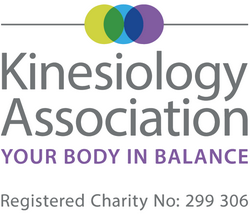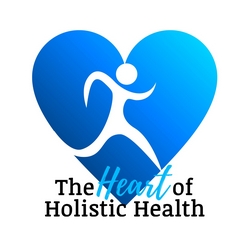Blood Sugar Handling
 With it being the month of November and Diabetes Awareness month, I thought what a good opportunity this would be to talk about Blood Sugar Handling! Is this something you think about when eating or do you always just associate this with people that are Diabetic?
With it being the month of November and Diabetes Awareness month, I thought what a good opportunity this would be to talk about Blood Sugar Handling! Is this something you think about when eating or do you always just associate this with people that are Diabetic?
If so you may want to read on to see whether you feel this is something you may want to give more consideration too as blood sugars are so important for everybody. Are you aware that people with Type 2 Diabetes can develop this quite slowly and with 90% of Diabetics being type 2 they can live undiagnosed for up to 10 years sometimes. So, by understanding more about the effects of blood sugars for everybody this could be quite beneficial to know, let me explain more.....
When we eat our pancreas will produce a hormone called insulin which deals with the glucose within the food to ensure our blood sugar levels do not go too high. The pancreas works closely with our liver which as one of its many jobs it acts as a reservoir for the handling of the glucose, and it will assist if more glucose is needed or by storing excess glucose that is not used as energy.
The food we eat will provide our body and muscles with the energy that is required however if we eat foods that raise our glucose levels to a high level this impacts the body in a negative way and it will have to work harder. Both diet and fluids do affect our blood sugar levels and in liquid form this can increase the sugar levels more rapidly for example by drinking fresh orange juice.
Stress/ors also has an impact on the hormone cortisol. Cortisol is a hormone that your adrenals produce. The adrenals work together with the pancreas for blood sugar handling to maintain healthy levels of glucose providing energy. When our cortisol levels are higher our bodies will produce more glucose providing energy as a response to the stress in our body and then more insulin is required to help reduce the glucose levels within the blood. Have you ever wondered why when you are stressed you may notice you put on a few extra lbs or you may be finding it more difficult to lose weight?
A different type of stress to the body would be having low blood sugars, when this happens you may feel a little anxious, lightheaded and shaky. Low blood sugars can happen to anyone especially if you have missed breakfast and then carried out lots of 'running around" and your body is using the glucose resources that your body has saved as extra energy for the body. A very good reason for ensuring you make the time to eat regularly without missing meals.
When the body is struggling with maintaining good blood sugar levels it can show in other ways such as: urinating more frequently - gaining weight - hunger with mid afternoon 'slumps" - tiredness and fatigue - shaking hands and limbs - poor concentration to name a few. Having a healthy snack at this time would be a good way to increase the glucose in the blood to ease the symptoms you may be experiencing.
One way to achieve really good blood sugars within the body would be to look into your diet because whatever we do eat most definitely affects our blood sugars and this can then lead to affect us not just physically but emotionally as well and when we have sugars that 'rollercoaster" the sugar levels within the blood we can get into a cycle of wanting to eat more and more because of the low blood sugars that happen after we have had the higher levels so by eating a diet that keeps the levels on a flatter plane will give you more energy, clearer mind as well as feeling more positive and upbeat.
What diet is the best way to eat I hear you say? Well, it is one that when you eat will have a low glucose load so that you can keep the raise in your blood sugars quite small. Depending on the food you eat the glucose released into the blood will happen at different speeds. When sugar is eaten with protein, fat and fibre it will be absorbed at a much slower rate. It can help by eating your foods also in a specific order so that the body has to deal with the carbohydrates last to keep the levels lower. This could be by eating your vegetables first (nice dark green veggies are a win win!!) then your protein (meat dairy fish or pulses), fat (nuts, avocado and fish) and lastly your carbohydrates (starchy foods, potatoes, bread, rice and pasta type foods). This will help you to feel less hungry, lower sugar cravings and a brighter mood.
When eating a diet high in carbohydrates all of the time the sugar will be processed at a much faster rate and the body will produce a higher rate of insulin which can then make the sugars crash causing the rollercoaster which will leave you feeling irritable and jittery on a regular basis which in turn will make you crave more sugary type foods and so the routine continues. This in turn affects your stress levels making you feel super tired and also can increase your weight as well causing more insulin to be required and you become more insulin resistant with time.
Adults should have around 7 tsps worth of sugar in a day and the consumption is so much higher than this in the UK. Sugar is actually very addictive and with the range in our blood fluctuating so much makes the cravings even worse. When foods are eaten that are high in sugar, they will give us the feeling of pleasure from the hormone Dopamine being released in the brain, but the sugar crash will then make you crave more and around and around it goes!
As the addiction to sugar is so strong you may suffer from brain fog, headaches and irritability when trying to lower the amount you eat so, please bear this in mind when reducing the amount that you eat. The brain will be wanting to repeat the dopamine 'fix" so makes the craving difficult to break because with time the body requires larger amounts of sugar and higher blood sugars to gain the same effect which makes sense as to why diet can be so hard to change for some people.
Hopefully you are now able to identify how important your sugar level handling is on a daily basis for everybody whether they are Diabetic or not. It may not have been something that you considered but i hope this has given you a little insight into how what we eat can affect us. Not only can a diet with high sugar levels affect us as discussed over a long period of time can cause so much inflammation and illness from heart disease, diabetes and eye problems it can make us feel so sluggish, tired and grumpy.
If this is something you would like to explore more Kinesiology is a great way to find balance within the body especially the endocrine which plays such a huge role in the blood sugar handling process. If you are finding, you are having energy slumps mid afternoon or after eating contact me for a chat.


 £0
£0





